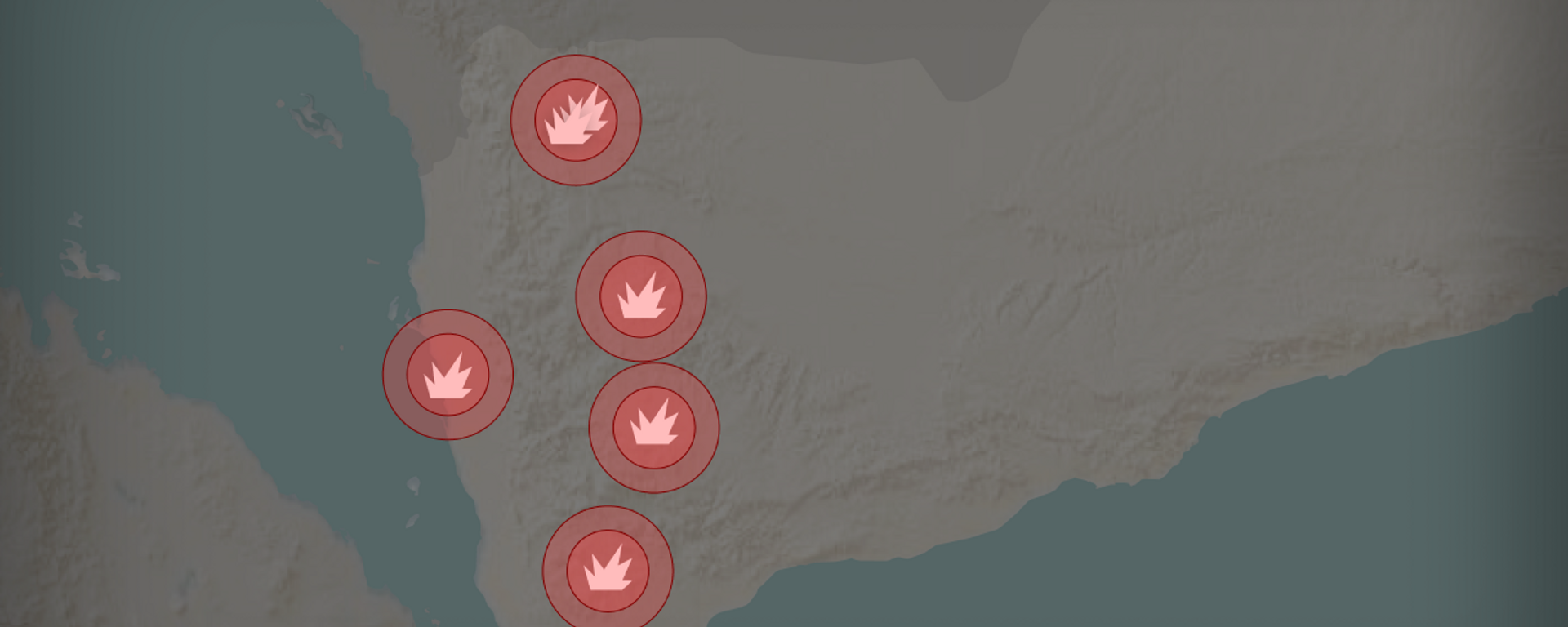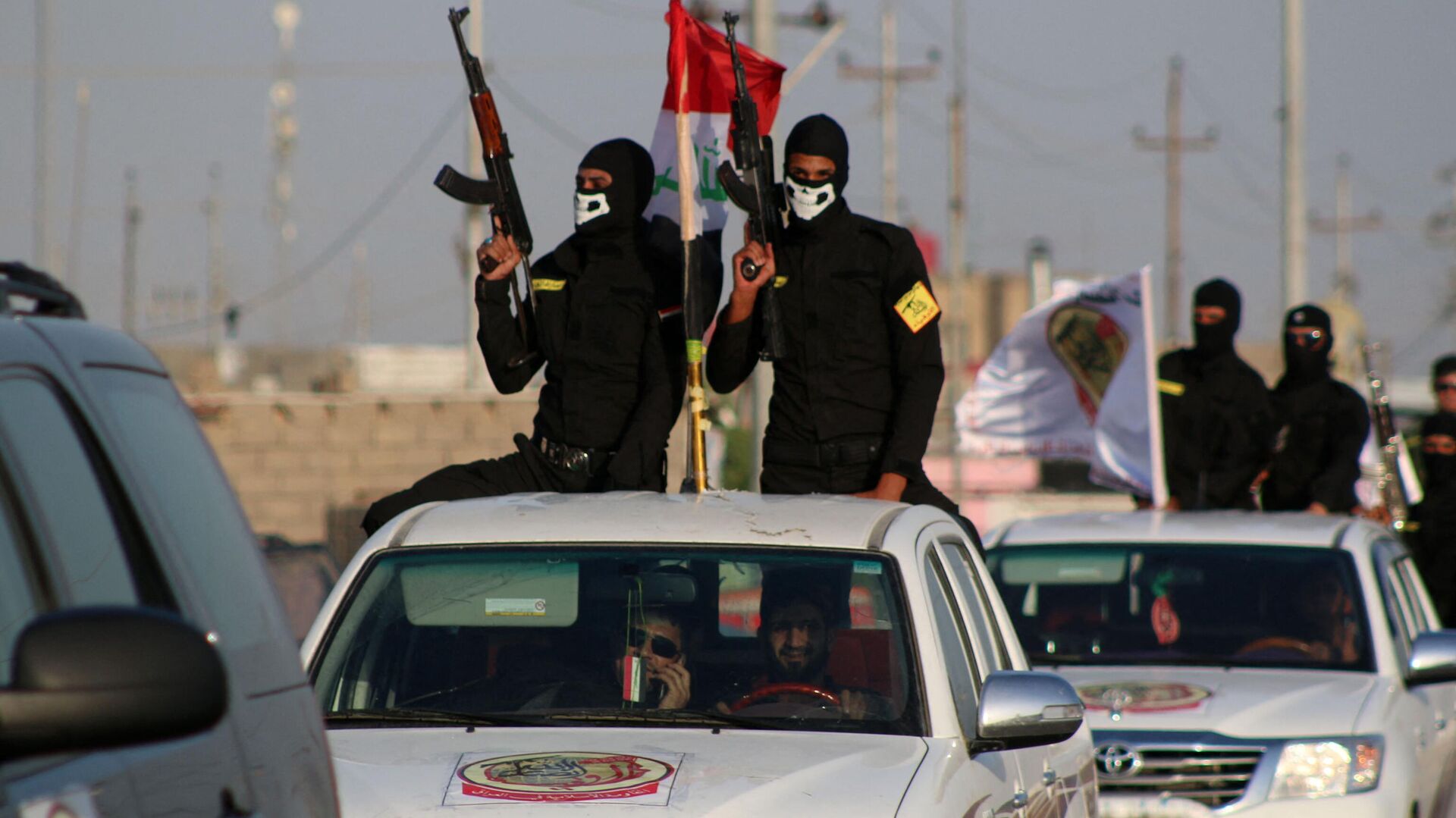https://sputnikglobe.com/20240114/asymmetric-warfare-why-the-houthis-can-beat-the-collective-west-1116154913.html
Asymmetric Warfare: Why the Houthis Can Beat the Collective West
Asymmetric Warfare: Why the Houthis Can Beat the Collective West
Sputnik International
Dr. Michael Parenti once said, "Economic violence is physical violence in slow motion." The economic sanctions against Iraq in the 1990's led directly to the deaths of half a million Iraqi children. Economic sanctions can be a weapon as deadly as any artillery shell or cruise missile.
2024-01-14T10:18+0000
2024-01-14T10:18+0000
2024-01-14T10:18+0000
analysis
us
houthis
united kingdom (uk)
hezbollah
houthi
https://cdn1.img.sputnikglobe.com/img/07e8/01/0e/1116155310_0:161:3071:1888_1920x0_80_0_0_a9f9af1686d433613ccdc8454f29d81f.jpg
The Houthis might at first appear to be vastly outmatched by the US/UK armada that has struck Yemen, but militarily and economically, the US and Europe are actually much more vulnerable than the Houthis. To put it simply, in both economic and military terms, the US, UK and Europe, and Israel, have a lot more to lose.The Houthis are not alone - Hezbollah, considered to be one of the most effective fighting forces in the world today, has an estimated 100,000 highly trained and motivated and very well armed soldiers in Lebanon, and is already at (undeclared, but de facto) war with Israel, and will probably escalate in the next few days. In October, 1983, Hezbollah was able to kill 305 US and French occupation soldiers at a cost of only 2 KIA on the Hezbollah side. Of the US and French soldiers, 220 were US Marines, the greatest single loss in one day of US Marines since the Battle of Iwo Jima in 1945. In the 2006 Hezbollah-Israeli War, in which Israel invaded southern Lebanon, Hezbollah was able to inflict "unacceptable casualties" on Israeli forces, which resulted in the withdrawal of IDF forces and the signing of UNSC1701. While the Lebanese casualties were significantly higher than Israeli, the conflict is generally seen as a tactical and strategic defeat for Israel. Israel and their US/EU allies would do well to remember both of these battles before continuing to escalate an already extremely volatile situation beyond the point of no return.Escalation between Hezbollah and the IDF on Lebanon's southern border will not only expand the current area of conflict into the eastern Mediterranean, it can quickly become a serious threat to the Israeli city of Haifa, only 20 miles from the Lebanese border. Haifa is Israel's 3rd largest city, with a population of around 300,000. The Port of Haifa is Israel's second largest by cargo tonnage, and the Haifa oil refinery (the largest, and one of only two in Israel) processes more than 66 million barrels of crude oil per year, more than a million barrels per week. The port, and especially the refinery would be prime targets, and significant damage to either, especially the refinery, would have serious repercussions for the Israeli economy.The "massive attack" by US/UK naval forces against the Houthis involved airstrikes, as well as approximately 100 cruise missiles, at a cost of more than $1 million each. According to reports published by the Houthi military command and Western media, the attack killed five Houthis. Now, do the math. The US and UK just spent a collective $100 million to kill 5 Houthis and escalate and exacerbate an already volatile situation. Based on assurances from the Houthi government that only Israeli-connected shipping was under threat, the majority of Red Sea shipping traffic had actually continued the Red Sea unhindered.This is no longer the case. As of January 13th, after the US/UK attacks and their possible continuation, the International Association of Independent Tanker Owners (Intertanko), which represents almost 70 per cent of all internationally traded oil, gas and chemical tankers, said in an advisory to members to “stay well away” from the Bab al Mendab strait, and for vessels travelling south via the Suez Canal to pause north of Yemen. This major disruption of tanker traffic may well have an upward influence on oil prices, coming as it does right on the heels of Saudi Aramco's announcement of a $2 per barrel discount beginning in February.The Huthis don't even have to shoot at any more ships - just the threat of the possibility of Houthi or coalition missiles being fired has been enough to disrupt Red Sea shipping traffic, which carries 12% of all global trade goods, and a staggering 30% of all container goods. It is actually the US/UK "coalition" that has escalated the situation to dangerous levels that now interfere with much more shipping, including tanker traffic.
https://sputnikglobe.com/20240113/which-parts-of-yemen-were-hit-by-joint-us-uk-strikes-1116139540.html
united kingdom (uk)
Sputnik International
feedback@sputniknews.com
+74956456601
MIA „Rossiya Segodnya“
2024
Russell Bentley
https://cdn1.img.sputnikglobe.com/img/07e6/03/1d/1094281697_332:0:1182:850_100x100_80_0_0_f4d7604e530b3861449b2db55c72f353.jpg
Russell Bentley
https://cdn1.img.sputnikglobe.com/img/07e6/03/1d/1094281697_332:0:1182:850_100x100_80_0_0_f4d7604e530b3861449b2db55c72f353.jpg
News
en_EN
Sputnik International
feedback@sputniknews.com
+74956456601
MIA „Rossiya Segodnya“
Sputnik International
feedback@sputniknews.com
+74956456601
MIA „Rossiya Segodnya“
Russell Bentley
https://cdn1.img.sputnikglobe.com/img/07e6/03/1d/1094281697_332:0:1182:850_100x100_80_0_0_f4d7604e530b3861449b2db55c72f353.jpg
ansar allah, houthi, houthis, strikes on yemen, middle east crisis, mideast violence
ansar allah, houthi, houthis, strikes on yemen, middle east crisis, mideast violence
Asymmetric Warfare: Why the Houthis Can Beat the Collective West
Dr. Michael Parenti once said, "Economic violence is physical violence in slow motion." The economic sanctions against Iraq in the 1990's led directly to the deaths of half a million Iraqi children. Economic sanctions can be a weapon as deadly as any artillery shell or cruise missile.
The Houthis might at first appear to be vastly outmatched by the US/UK armada that has struck Yemen, but militarily and economically, the US and Europe are actually much more vulnerable than the Houthis. To put it simply, in both economic and military terms, the US, UK and Europe, and Israel, have a lot more to lose.
The Houthis are not alone - Hezbollah, considered to be one of the most effective fighting forces in the world today, has an estimated 100,000 highly trained and motivated and very well armed soldiers in Lebanon, and is already at (undeclared, but de facto) war with Israel, and will probably escalate in the next few days. In October, 1983, Hezbollah was able to kill 305 US and French occupation soldiers at a cost of only 2 KIA on the Hezbollah side.

13 January 2024, 06:42 GMT
Of the US and French soldiers, 220 were US Marines, the greatest single loss in one day of US Marines since the Battle of Iwo Jima in 1945. In the 2006 Hezbollah-Israeli War, in which Israel invaded southern Lebanon, Hezbollah was able to inflict "unacceptable casualties" on Israeli forces, which resulted in the withdrawal of IDF forces and the signing of UNSC1701. While the Lebanese casualties were significantly higher than Israeli, the conflict is generally seen as a tactical and strategic defeat for Israel. Israel and their US/EU allies would do well to remember both of these battles before continuing to escalate an already extremely volatile situation beyond the point of no return.
Escalation between Hezbollah and the IDF on Lebanon's southern border will not only expand the current area of conflict into the eastern Mediterranean, it can quickly become a serious threat to the Israeli city of Haifa, only 20 miles from the Lebanese border. Haifa is Israel's 3rd largest city, with a population of around 300,000. The Port of Haifa is Israel's second largest by cargo tonnage, and the
Haifa oil refinery (the largest, and one of only two in Israel) processes more than 66 million barrels of crude oil per year, more than a million barrels per week. The port, and especially the refinery would be prime targets, and significant damage to either, especially the refinery, would have serious repercussions for the Israeli economy.
The "massive attack" by US/UK naval forces against the Houthis involved airstrikes, as well as approximately
100 cruise missiles, at a cost of more than
$1 million each. According to reports published by the Houthi military command and Western media, the attack killed five Houthis. Now, do the math. The US and UK just spent a collective $100 million to kill 5 Houthis and escalate and exacerbate an already volatile situation. Based on assurances from the Houthi government that only Israeli-connected shipping was under threat, the majority of Red Sea shipping traffic had actually continued the Red Sea unhindered.
This is no longer the case. As of January 13th, after the US/UK attacks and their possible continuation, the International Association of Independent Tanker Owners (Intertanko), which represents almost 70 per cent of all internationally traded oil, gas and chemical tankers, said in
an advisory to members to “stay well away” from the Bab al Mendab strait, and for vessels travelling south via the Suez Canal to pause north of Yemen. This major disruption of tanker traffic may well have an upward influence on oil prices, coming as it does right on the heels of Saudi Aramco's announcement of a
$2 per barrel discount beginning in February.
The Huthis don't even have to shoot at any more ships - just the threat of the possibility of Houthi or coalition missiles being fired has been enough to disrupt Red Sea shipping traffic, which carries 12% of all global trade goods, and a staggering 30% of all container goods. It is actually the US/UK "coalition" that has escalated the situation to dangerous levels that now interfere with much more shipping, including tanker traffic.




